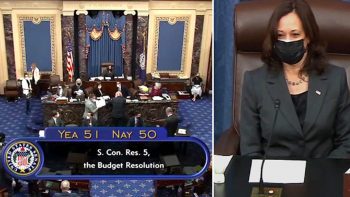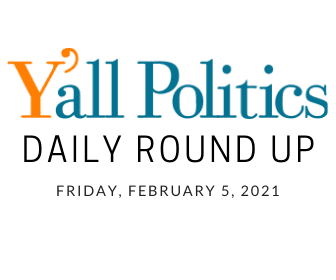
After an all night session in the U.S. Senate, Democrats approved a budget resolution that fast-tracks President Joe Biden’s coronavirus relief plan. All Republicans voted against the measure, setting up a 50-50 tie. However, since Vice President Kamala Harris was in the chair, she cast the tie-breaking vote to move the process forward.
The budget framework outlines $1.9 trillion in spending and tax provisions under filibuster-exempt instructions that could allow, among other things, nearly doubling the federal minimum wage. The nonpartisan Congressional Budget Office indicates raising the minimum wage for $15 would eliminate 1.3 million jobs.
In a release sent just after 4:30am Friday morning, Mississippi U.S. Senator Cindy Hyde-Smith criticized the Senate Democrat budget resolution as a backdoor scheme for liberal big government spending.
“Veiled under the guise of COVID-19 relief, this budget resolution is really a backdoor scheme to rush through Congress a big government wish list that has little to do with defeating the coronavirus. It is yet another signal since the inauguration that pledges of unity and bipartisan working relations continue to ring hollow,” Hyde-Smith said. “I am not opposed to additional targeted funding to help overcome our national health emergency and rebuild the economy. A lot of the money already provided by Congress still isn’t even out the door, which calls into question the rush to spend nearly $2 trillion more now.”
Hyde-Smith pointed out that only about half the money for testing and a third of the funds available for vaccine distribution from the December COVID-19 relief package have been obligated. Furthermore, since the start of the pandemic last year, Congress has provided almost $68 billion to support K-12 education and reopen schools, but only $4 billion has been spent.
The budget resolution passed this morning directs committees to write legislation reflecting Biden’s COVID relief priorities. Provisions would include, among other things:
- $1,400 direct payments
- A $400 per week jobless benefit through September
- $350 billion in state, local and tribal government relief
- A $20 billion national Covid-19 vaccination program
- $50 billion for virus testing
- $170 billion for K-12 schools and higher education institutions
- A $30 billion rent and utility assistance fund
As for the direct individual payments portion of the measure, an amendment was passed to prevent high-income people from getting stimulus checks, but that threshold was vague at this point.
The Senate-passed FY21 Budget Resolution must be reconciled with a House-passed measure before it can be finalized and then carried out by committees of jurisdiction.











